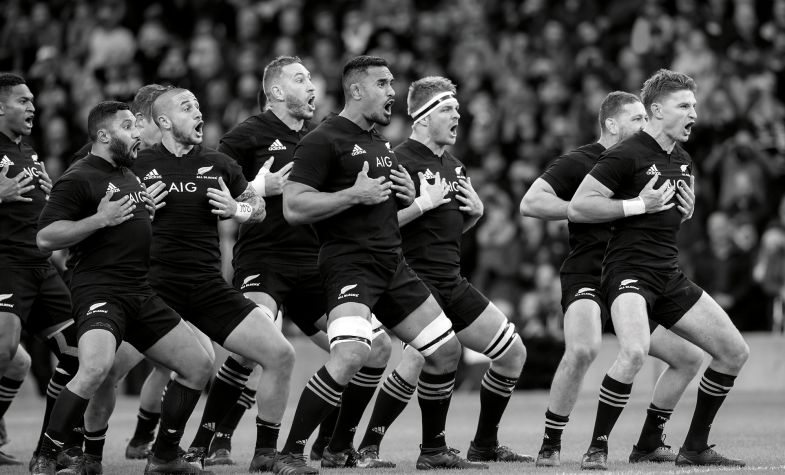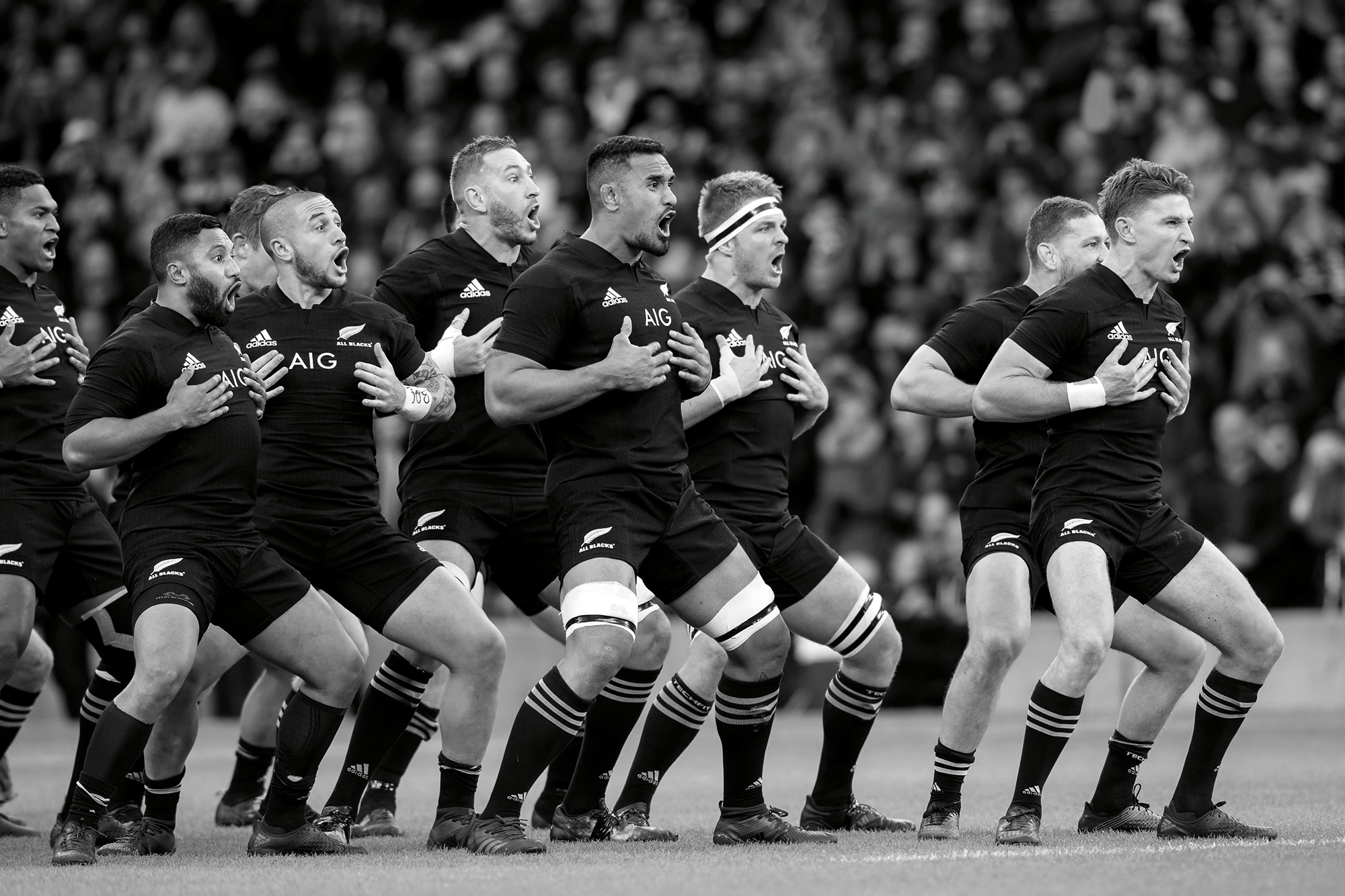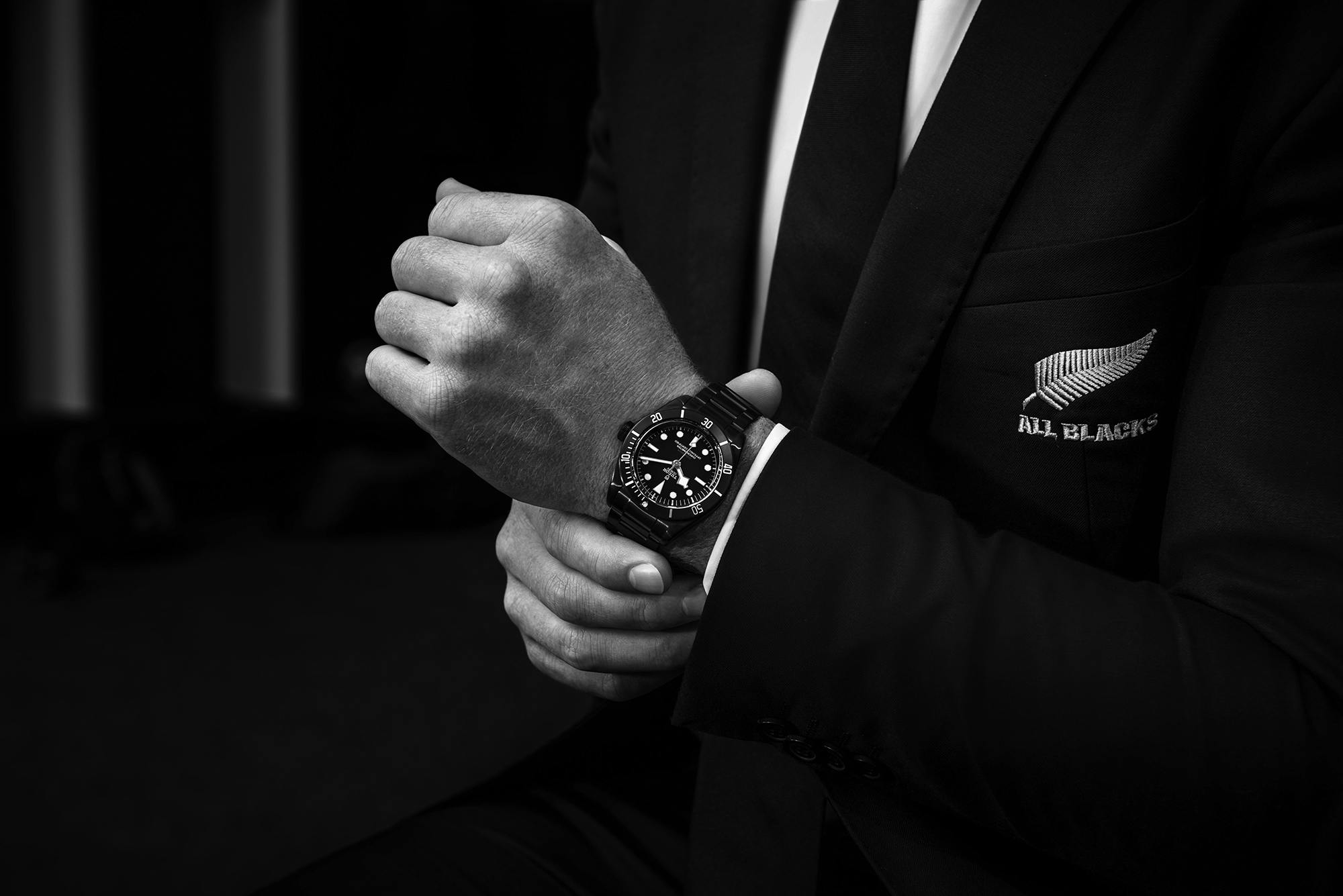WORDS
Peter Howarth
Anyone who is interested in rugby, and certainly anybody who has ever played the game, will be familiar with the mighty All Blacks. The national rugby union team of New Zealand is considered to be the best in the world, a reputation that passes from one generation of Kiwis to the next. Not only have New Zealand won the last two Rugby World Cups, they also have a 77 per cent win-rate in test match rugby. In fact, the statistics show they are the best side ever.
But beyond the on-pitch performance, there is an aura around the team that derives from the fact they come from a small country that is passionate about the game – an island country in the Pacific, steeped in Maori culture and folklore, a perception they like to play up with their scary pre-match war dance, the haka.
As someone who played a bit of rugby at school, I have always been a sucker for the All Blacks myth. So, when Brummell was given the opportunity to spend a morning training with the current team – care of Tudor watches – there was only ever going to be one journalist accepting the invitation. And that’s how I found myself on a rugby pitch near Twickenham on a cold, sunny day with some of the New Zealand team for what would prove to be a Boy’s Own dream come true.
Among their number was Beauden Barrett, the man who, last November, was named World Rugby Player of the Year for the second year running (a title that has, by the way, been won by an All Black every year since 2012). In person, Barrett is friendly and laid back, and it’s after a while practising kicks with him that I realise what makes these players so unusual. Although they have an international the next day (against the Barbarians at Twickenham – this is during the Autumn Internationals) – they are having fun. At one point, when asked if the big occasion has an effect on him, for example, playing at Twickenham, Barrett charmingly explains that rugby is just about being with a ball in a field – wherever that field is, even if it’s on a farm. The fly-half did, indeed, grow up on a farm, in the South Taranaki district of New Zealand.
These athletes, though at the top of their sport, come across as men who still love the game they are playing – and that, surely, must be a key to their success. Asked if his training sessions for kicking are as rigorous as Jonny Wilkinson’s were reputed to be, Barrett answers, ‘No’ and laughs. ‘I mean, it’d be quite taxing on your body for starters. I like to cap it on Thursday and Friday… a certain amount of kicks that I’m doing, and if I get all of them, great, if I get one of them, so be it,’ he explains. ‘I’m not going back to do more. I’ve got to learn from that session, and with it being so structured it allows me to learn from it, so that’s the way I approach it.’
So he’s not obsessive? ‘Not in a physical way. Mentally, it might annoy me, but I know that it’s game day on Saturday and that’s when it counts.’
I ask what it takes to be an All Black, and am told that it’s hard work. TJ Perenara, half-back, says there’s ‘an aspect of talent, but I’d say most of it’s hard work’.
Today I get a tiny insight into just what that hard work entails. There are passing drills and we practise kicking, throwing to the line-out, lifting in the line-out, and receiving the ball (from Perenara) to kick it into a designated target area. We end with a game of touch rugby. Mercifully, there is no contact today.
Which is just as well. You see, the All Blacks are tough and that’s really the subtext to my visit. The team is sponsored by Tudor watches, a firm that has a heritage of making hard-working and hard-wearing timepieces. In the 1950s, Tudor, founded by Bavarian-born Anglophile Hans Wilsdorf – hence the name – as a partner to Rolex, the other watch company he’d launched, was aligned with men who did tough jobs. US construction workers riveting skyscrapers put the watches to the test, as did stone cutters with their pneumatic drills. Members of a two-year-long Royal Navy expedition to the Arctic were kitted out with Tudors, and in 1955, a motorcyclist rode the 1,000-mile Monaco International Trophy rally wearing a Tudor, exposing it to vibrations and the elements – a trip that Tudor re-enacted last year, riding in The Great Mile rally from The Castle of Mey in Scotland to the southern tip of Cornwall.
Today, in a search for equally extreme ambassadors, Tudor hit upon the idea of sponsoring the All Blacks. Of course, they can’t wear the watches during matches, but the association makes sense. And the all-black Tudor Black Bay Dark model that the team wears –a vintage-inspired diver’s watch in steel treated with PVD – certainly colour coordinates with their strip.
So how do the All Blacks maintain their impressive sporting culture? Barrett, who has been named captain for the first time for the game tomorrow, is clear on this. ‘I guess we have our standards and our guiding principles, and we have our goal, where we want to get to, so that’s in the back of our mind. And the rest of it’s just being united as one team. Getting to know everyone in the team, really enjoying the down time: it’s those friendships, those bonds that matter when it really counts. It doesn’t happen by a fluke: it comes down to trust and working hard, and knowing your mate will be there.’
The Tudor Black Bay Dark, £3,200; tudorwatch.com









